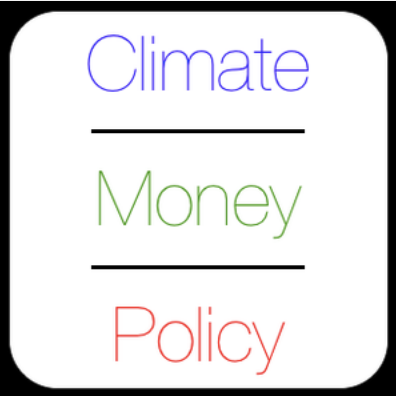A Comment on the Lawfare Article "On What Grounds Can the FBI Investigate the President as a Counterintelligence Threat?"
/Even by the standards of today’s politics this week has been full of strange things.
Possibly the most important of those strange things is a report that following the Comey firing the FBI opened a counter-intelligence investigation which asked (and I’m paraphrasing) “Is the President an agent of a foreign power and therefore a national security risk?” This is a deeply weird thing to happen and it sets a terrible precedent.
Everyone knows I’m not a lawyer, let alone a constitutional scholar, so when there’s a thorny problem in this space that I don’t understand I tune in to Lawfare where I know I can get some help from some of the brightest minds around. The article I link to here and reference in the title of this post walks through the legal problems with the FBI taking this action. Here’s the short version: The president is the sole constitutional actor who can determine foreign policy. Therefore it’s not possible for him to be a national security threat because the nation security interest is whatever he says it is. Who gave the FBI the authority to usurp the President’s authority and do we want to live in a country where the FBI would grant itself the authority to do that. The counterpoint is obvious: What if it’s true? Don’t we want the FBI to do just what it did?
Again, I’m not a lawyer, but it seems like this is one of those times (like this great scene from Lincoln) where legal logic isn’t going to get you to an answer. In fact it may very well be that the right thing to do is not the legal thing to do. I’m going to take a moment to reframe this problem in what I believe is the proper context.
THE “SUPER-LEGAL” SOLUTION
Many of our biggest problems aren’t legal ones. Strictly speaking they’re not political problems either. Our problems are issues of Power. America is a country of laws and too often we forget that laws aren’t immutable facts of the universe. Laws don’t even really exist. They’re just the stories we tell one another about how we’ve agreed to live our lives together. Nothing more. Their power is only in the fact that we agree to constrain ourselves by those stories. Take for example the Presidential Oath of Office. To the best of my knowledge there’s no law against breaking that oath. There are plenty of laws concerning acts that we’d consider a betrayal of the oath but the Oath itself isn’t a legal standard.
For our purposes here this is a really important thing to keep in mind because federal officers (including FBI agents) all take a similar oath. This gets interesting because in order for the the Feds to have any leg to stand on they’d need to come up with a justification that actually supersedes a legal framework and the oath of office is just such a “super-legal” solution. Why is such a standard required, you ask? Well, because as we’ve already established the President, and the President only, can set the foreign policy agenda of the United States and (as crazy as it sounds) he has an absolute right to place the interests of the Russia ahead of the interest of the United States if he chooses… unless we deem the Oath of office to be a governing constraint, a position for which there is no legal cause.
At this point someone will jump in and rightly point out that this is the kind of thing that Impeachment is built for and that it’s Congress, not the FBI that has authority here. I would agree with this point. Yet consider the frame of mind the Feds must have had. Certainly Congress has been charged with judging if a President should remain in office, but Impeachment isn’t a legal standard, it’s a political one. It’s a political one that ends with a trial conducted in the Senate and overseen by the Chief Justice of the Supreme Court. How then can such a trial be conducted fairly if the charge of Impeachment is made on some grounds relative to failure to uphold his oath, when there is no standard for such a charge? At that point the conscientious federal investigator might very well reflect on the fact that the investigator herself had taken a similar oath. Certainly if breach of the oath by the President is grounds for a charge of Impeachment, then oaths to support the Constitution must also carry an equally forceful responsibility to our federal agents to make a good faith effort to investigate Presidential oath-breaking and in the course of that investigation, preserve evidence.
So where are we? Let’s return to my early point. Many of our problems aren’t about issues of law, or even about politics, they’re about Power. Power is the crafting and sale of a counter-story so that events can be arranged which the law and politics would disallow under the story we tell ourselves now. We’ve given a small group of people the right to run the country. Some of them act illegally, and when we’ve vigilant we catch and punish them. Some people act with disregard to politics and in time they lose their position. Right now though, many are acting to craft a different set of stories which would grant them power. The most fundamental of our stories is the one told by the Constitution and although it isn’t a legal standard, perhaps the FBI can justify its actions on that super-legal basis.












